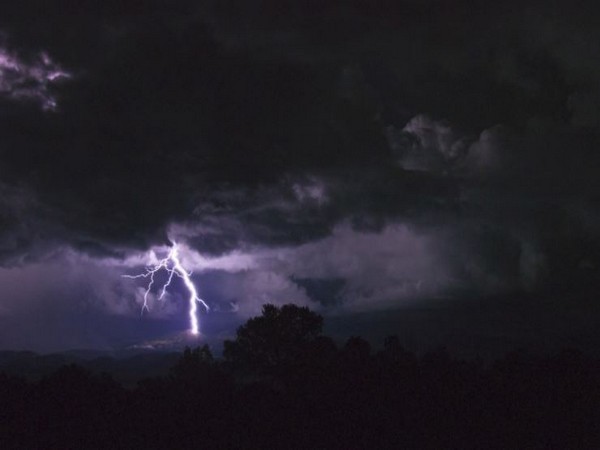

At least eight people, including a child, were killed in a fresh spell of heavy rain that lashed parts of Balochistan, local media reported.
Of those who lost their lives, three were killed in the Killi Khali neighbourhood located on the outskirts of Quetta where heavy rains brought down the walls of two houses. Another death was reported in the Chaman district, the Dawn reported.
Meanwhile, the District’s deputy commissioner, Munir Ahmad Kakar said, “Four of the deceased were swept away in flash floods that hit Qila Abdullah district late on Friday night. They were among the 15 who were on a tractor trolley when it was washed away. The rest of the people remained missing.”
Meanwhile, traffic between Khyber Pakhtunkhwa and Gilgit-Baltistan was suspended for the second time this month on Friday after a temporary steel bridge installed at the Karakoram Highway (KKH) was swept away by the flash flood in the Ichar nullah area of Upper Kohistan.
Mohammad Asif, the deputy commissioner of Upper Kohistan, said, “We installed a Bailey bridge some three days ago at Ichar nullah, but it was swept away in the flash floods which brought heavy boulders, rocks and eroded lands, suspending traffic between KP and GB.”
The working sites of the Dasu hydropower project, which has already been hit by a cost overrun of upto 100 billion Pakistani rupees, were also inundated in the floods, which also swept away machinery, including shovels, the Dawn reported.
Balochistan in particular has seen uncharacteristically heavy rains during the monsoon season this year. The recent floods in the province triggered by the rains have devastated the homes of thousands of people, especially in the Lasbela District.
Zakaullah Durrani, the assistant commissioner of Muslim Bagh said that around 120 houses were swept away by hill torrents on Thursday night in Qila Saifullah district, adding that 200 houses were also damaged in other localities.
While the Meteorological Department on Friday forecast thunderstorms with a few “heavy” to “very heavy” falls and occasional strong winds in several parts of Sindh in the next two days.
“The well-marked low-pressure area over the northeast Arabian Sea has intensified into an intense low-pressure area (depression) with a maximum wind speed of 50-55 kilometres per hour,” a Met department advisory said.
“The system is located around latitude 22.6N and longitude 66.4E, at a distance of about 260km south/southeast of Karachi and 280km from Thatta. This weather system is likely to move in northwest direction initially and then westwards,” it said.
The department has forecast thunderstorms with a few heavy to very heavy falls and occasional strong winds in parts of Pakistan until Aug 14 with occasional gaps.
Rainfall is also likely to intensify in Balochistan‘s north-eastern and southern districts and may trigger flash floods in Dadu, Jamshoro and Kambar Shahdadkot districts and downstream.
Besides, heavy rains over Khuzdar, Lasbela and Hub districts and over the Kirthar mountain range may create extra pressure on Hub and Thaddo dams and downstream areas.
Heavy falls may create waterlogging and urban flooding in low-lying areas during the forecast period, the Dawn reported.
As per the provincial authorities, around 200 people in Balochistan have lost their lives so far. Over 18,000 homes were damaged or demolished due to the floods in the province. Tube wells, solar panels and other forms of communication are severely damaged due to the rains.
Disastrous spells of monsoon rains have led to severe damage on six different highways with 670 km length and 16 bridges, PDMA said. Additionally, 1,98,461 acres of crops were destroyed amid the natural disaster.
Pakistan federal minister for Climate Change, Senator Sherry Rehman said, “Balochistan recorded more than 600 per cent above-normal rainfall during these monsoon spells since mid-June while Sindh received 500 per cent more rain. Major cities are being warned against urban flooding, prolonged electricity outages, and flash floods.”
The effects of climate change continue to exacerbate in the country as it experienced lengthy heatwaves and forest fires, he added.